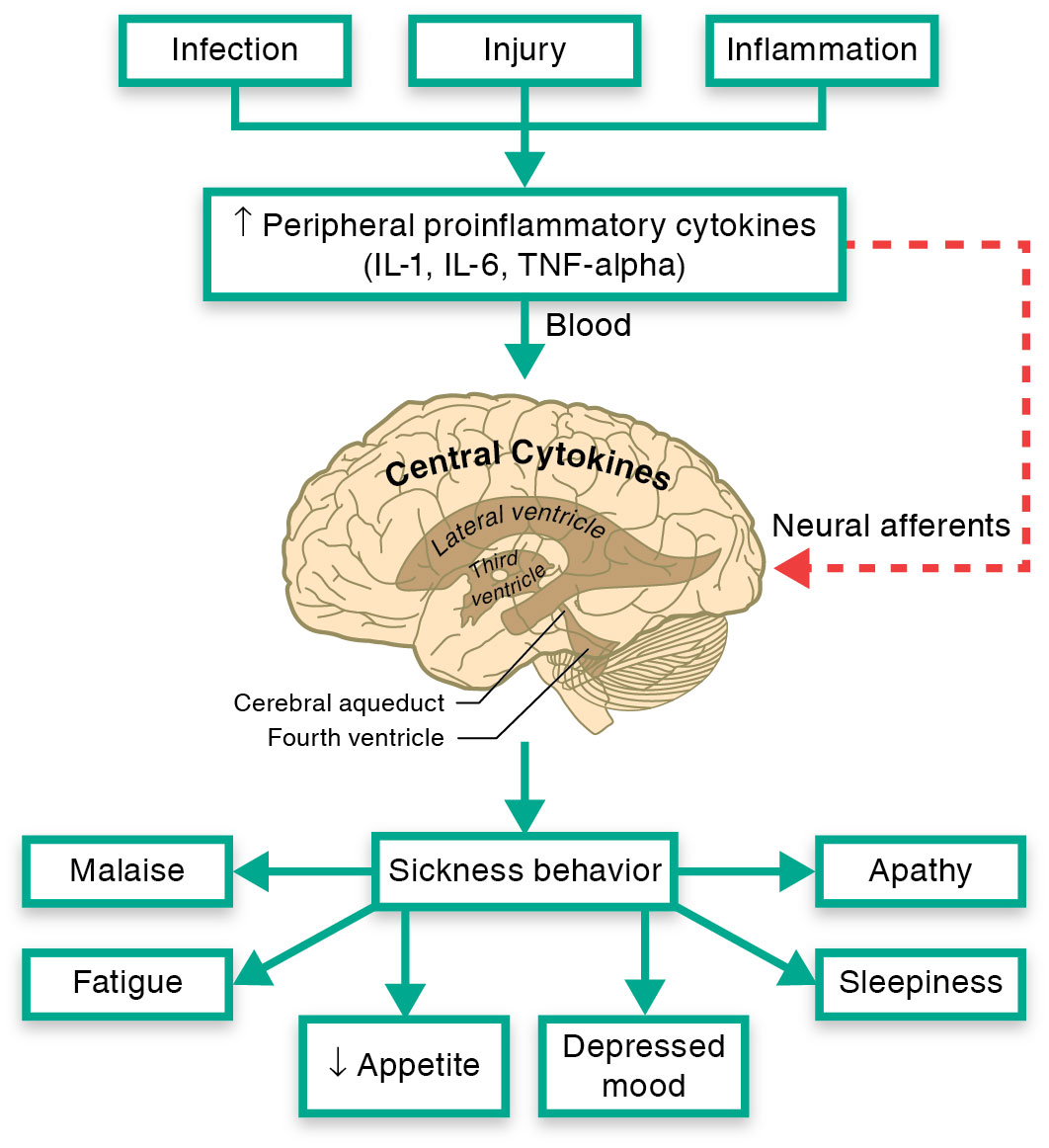 |
| Previous Image | Next Image |
| Description: Immune-to-brain signaling occurs in response to infection, injury, and inflammation that occur in peripheral organs and tissues. These pathologic processes result in macrophage activation and the release of pro-inflammatory cytokines (IL-1, IL-6, and tumor necrosis factor alpha [TNF-alpha]). Although too large to directly stimulate key brain areas that mediate behavioral changes, these cytokines are able to trigger elevations in central (brain) cytokines, which in turn activate key brain areas that mediate sickness behavior. Peripherally produced pro-inflammatory cytokines can initiate this through the blood that circulates around the circumventricular organs, which lie outside of the blood–brain barrier or by being transported from the blood across the blood–brain barrier via a specialized transporter system. Also, peripherally produced cytokines can activate neural afferents that are present in the local area of tissue infection, inflammation or injury. Activation of these neural afferents signal areas of the brain that mediate sickness behavior. Infection, injury, and inflammation all lead to peripheral proinflammatory cytokines, which are neural afferents. This affects the lateral ventricle, third ventricle, cerebral aqueduct, and fourth ventricle. This leads to sickness behavior, which in turns leads to the following: • Malaise • Fatigue • Appetite • Depressed mood • Apathy • Sleepiness Picture Stats: Views: 623 Filesize: 191.76kB Height: 1162 Width: 1062 Source: https://biology-forums.com/index.php?action=gallery;sa=view;id=49635 |
